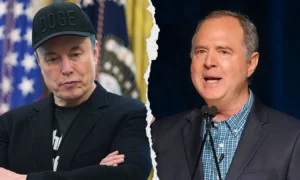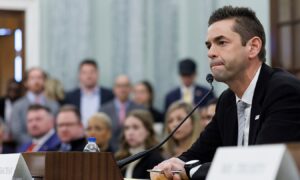President Joe Biden has been promoting a plan for the federal government to take the lead in reviving a pandemic-damaged economy and supporting it with long-term investments for the past two years.
It resulted in a previously unheard-of flurry of investment on scientific research, clean energy, and infrastructure, as well as trillions of dollars in relief for Americans.
But Bidenomics is in a new day.
The president must now find a way to cooperate with GOP members to pass legislation, with Republicans poised to seize control of the House and Biden’s Democrats keeping a narrow advantage in the Senate. Biden won’t be in charge of setting the agenda for economic policy on Capitol Hill; instead, he’ll be compelled to deal with problems that Republicans care about or accept paralysis.
As a result, he will need to find areas of agreement with the GOP on everything from confronting China to controlling Big Tech. Even with the prospect of a recession, he will face fierce Republican opposition to increased federal spending as well as vows to reduce Medicare and Social Security benefits.
By stating that he is willing to work with “my Republican colleagues,” Biden has created the possibility for collaboration. He also stated that Americans “want Republicans to be prepared to work with me as well.”
But with a presidential race in 2024, he’ll have to fend off growing criticism of both his administration’s implementation of recently passed legislation as well as his economic record, which the GOP accuses of being the cause of the greatest inflation in four decades.
In order to further the president’s climate change and other objectives, the White House will likely shift more of its attention away from Capitol Hill and toward regulatory organisations, such as the Consumer Financial Protection Bureau, the Securities and Exchange Commission, and the Commerce and Energy Departments.
Here are a few ways that economic policy will change with Republican control of the House in the upcoming years:
Federal spending
The time for large-scale government spending initiatives that Biden introduced to has passed. Republicans have criticised Democrats’ spending plans and lamented the larger deficits that came along with Biden’s initial Covid rescue measure, despite the fact that they supported bipartisan budget agreements that increased spending throughout the Trump presidency.
If the economy enters a slump, as many economists anticipate, the GOP’s opposition to additional borrowing might be a difficulty for the president the next year. Any targeted assistance for poor households will likely need to be offset by spending reductions or tax increases in order to prevent deficits from growing, which might fuel inflation and disturb the financial markets. Even when the president’s own party controlled both chambers of Congress, that was a high standard.
debt limit
The raising of the government’s borrowing limit is a significant issue that the president will have to resolve with Republicans. The debt ceiling was established by lawmakers at $31.4 trillion last year, which, according to analysts, will be reached by the Treasury Department in the middle of 2019. However, that timetable is incredibly unclear and might advance if the economy weakens and government expenditure on safety net programmes, like unemployment benefits, starts to increase in cost.
Biden says he will categorically reject the strategy used by House Republicans to try to compel budget cuts through the debt limit-raising procedure. The White House is looking at options for extending the debt ceiling during the lame duck period before the next Congress is installed due to the possibility of a showdown with the GOP next year that would be reminiscent of market-shaking standoffs during the Obama administration.
Officials from the administration don’t hold out much hope that lawmakers will agree to that during the current session, which goes through late December. And any compromise they may make would probably require the addition of other pieces of legislation, like an omnibus spending measure.
Enterprise and Wall Street
As he worked to win over Democrats for his expansive spending plans, the president frequently courted the support of leftists and labour organisations. Now, he might be more tempted to look for allies among business leaders and rely on them to persuade Republicans to support his policies.
A Republican-controlled House won’t offer much comfort to Wall Street, which has been under increased scrutiny from Democrats and regulators appointed by Biden.
Conservatives are putting pressure on GOP leaders to tell major financial institutions to stop pandering to the left with “woke” business strategies, to continue funding fossil fuels, and to sever links with China. The ability to summon witnesses and wield committee gavels will support that, according to House Republicans.
Trade
Republicans have regained control of the House, but their narrow margin of victory in the House will disappoint free traders in the GOP who wanted to use majorities in both chambers of Congress to pressure Biden to begin negotiations on new free trade agreements. The same is true for the vociferous China hawks in the GOP who have charged that the Biden administration is too lenient toward Beijing.
The supporters of Biden’s new industrial policies aimed at reviving the American manufacturing sector will be encouraged by the election results. Republicans’ edge on economic matters will be seen as diminished by the Democrats’ historic legislation on semiconductors and renewable energy this fall, especially during a time of rising inflation.
A GOP takeover of the House would also alter the course of congressional policy on China and technology, even if both parties appear intent on demonstrating that they are harder on Beijing. For the past two years, Republicans have pushed for even tougher regulations to prevent espionage at colleges and research facilities.









